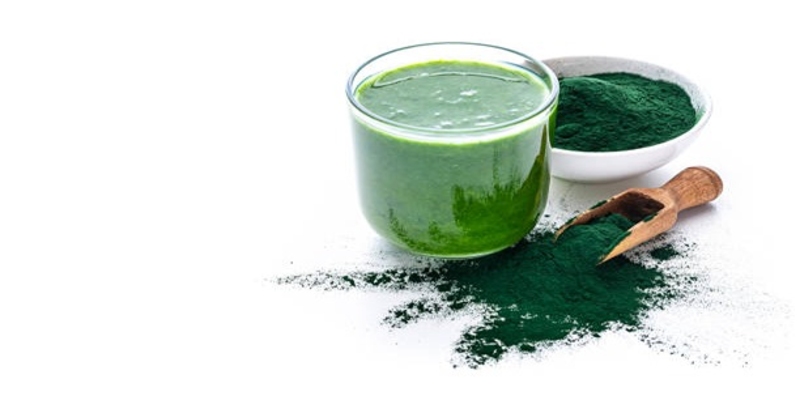The cooling and aromatic properties are why menthol is a naturally occurring component of cosmetics and skincare products. According to several studies, menthol applied topically may also be effective in alleviating mild pain.
From peppermint, cornmint, or other mint oils, crystallized menthol, an organic compound, can be extracted. When producing natural menthol crystals and flakes, Mentha arvensis, also known as wild mint, is the principal species of mint utilized. It is also possible to produce menthol synthetically. Solid at ambient temperature transforms slightly higher into a waxy, crystalline substance that is transparent or white in hue.
Many over-the-counter (OTC) medications contain menthol due to its local anesthetic and anti-irritant properties and application in the cosmetic industry. To alleviate pain and inflammation in another area, a counterirritant is a substance that induces mild inflammation or irritation in one location. Menthol is therefore utilized as a topical cough remedy in some over-the-counter cold medications; consider crystallized menthol-based chest ointments.
Why Is Menthol Used in Skincare?

Currently, menthol is utilized in various products, including aftershave and topically applied muscle-cooling lotions. Some estimates place the annual synthetic production of menthol for commercial purposes at over 3,000 tons. It is frequently employed in perfumery to accentuate floral undertones and as a flavoring agent in skin care and oral care products. Crystallized menthol is strategically incorporated into cosmetics and skin care products to serve dual purposes: analgesic properties and enhancement of aroma and flavor.
Helps With Pain Relief
In addition, specific skincare products may contain menthol that acts as a topical analgesic or pain reliever. Crystal menthol is frequently present in cleansers and washes formulated for acne, other painful skin conditions, post-sun care, and non-sensitive skin. Its capacity to induce a cooling sensation is the reason for this.
When menthol blocks the calcium current along the nerves responsible for temperature detection, it does not reduce the skin's temperature but induces a cooling effect. Communication between the brain and the nerve endings regarding skin cooling. Because it alleviates the burning, excruciating sensation brought on by overexposure to the sun, menthol is an extremely useful ingredient for after-sun products such as gels, creams, and lotions. Additionally, topical solutions for headache pain relief contain crystallized menthol. Consider applying such products to the forehead.
Used For Scent and Flavoring
Additionally, menthol is utilized as a flavoring and fragrance component in personal care and cosmetic products—crystal menthol is distinguished by its tart flavor and aroma. Menthol is ultimately incorporated into lip care products because it increases blood circulation to the area, producing a transient fullness effect.
Other Benefits Of Menthol

Helps Ease Allergies
Millions of people worldwide suffer from rhinitis, seasonal allergies, or hay fever. Mint leaf extracts such as menthol may reduce these symptoms. They relieve severe nasal symptoms from allergies by inhibiting chemical components. According to studies, these natural remedies may relieve stuffy nose, wheezing, and related symptoms. One natural way to ease seasonal discomfort is to eat mint. Mint's usefulness in this situation shows how natural compounds might complement established treatments for common health conditions.
Promotes Digestion
Menthol is recognized for its digestive properties. Its scent stimulates digestive enzymes and salivary glands, making it a great aperitif or palate cleanser. Menthol has been shown to treat dyspepsia and inflammation. Moreover, the beneficial properties of its constituent crystallized menthol in addressing symptoms of irritable bowel syndrome (IBS), such as diarrhea, have been established. Menthol’s capacity to enhance gastrointestinal comfort is highlighted in a 2013 study, implying that consistent ingestion may improve digestive health.
Respiratory and Oral Health
Mint crystal menthol has been shown to alleviate nasal congestion. Offering relief from respiratory issues associated with asthma and common colds, the properties of mint can significantly clear congestion in the lungs, bronchi, and throat. The irritation caused by chronic coughing is alleviated by its cooling effect on the nose, throat, and other respiratory passages. Compared to aerosol-based inhalers, mint-based balms are more environmentally sustainable and productive. As a natural, environmentally friendly alternative to harsh chemical-based remedies, the menthol strain is favored among individuals seeking respiratory discomfort relief when incorporated into treatments.
Germicidal and breath-freshening properties are attributes that mint is renowned for. It promotes improved oral hygiene by eliminating harmful bacteria from the mouth and cleansing the teeth and tongue. Throughout history, the menthol strain has been utilized topically to restore pH levels and inhibit the growth of bacteria on the gums and teeth. Crystal menthol, an organic compound in mint, is a fundamental component of contemporary dental products.
Promotes Weight Loss
Nitiating digestive enzymes that convert fats and nutrients into energy, according to a 2003 study, may contribute to weight loss from the menthol strain. Caloric intake can be reduced by substituting sugar-free mint tea for calorically dense beverages such as soda; a 12-ounce serving of mint tea is calorically devoid, whereas the equivalent volume of soda contains 150 calories. This straightforward adjustment facilitates weight management and promotes a healthier dietary regimen. By inhibiting the production of unnecessary calories and improving digestive function, incorporating Menthol into one's diet, particularly in beverages, can be a strategic move toward healthily achieving weight loss objectives.
Enhances Memory
Mint has been shown to enhance mental alertness and memory. Increased alertness and enhanced memory retention have been associated with the regular use of menthol strain products, particularly when applied through gum. This suggests that individuals seeking to improve their mental performance may find Menthol useful, as its stimulating properties may increase cognitive functions. According to the study, Menthol may have discernible cognitive benefits if incorporated into daily routines, highlighting the herb's potential as a natural remedy for enhancing concentration and memory.







